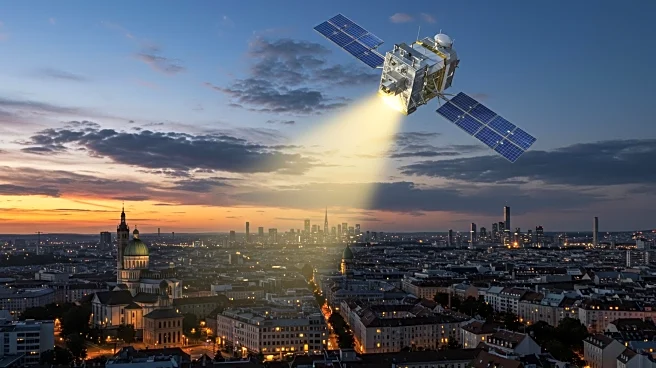What is the story about?
What's Happening?
A study conducted by researchers from King's College London and Xi'an Jiaotong University proposes that space-based solar power could significantly contribute to the European Union's goal of achieving net-zero greenhouse gas emissions by 2050. The study analyzed two NASA designs for space-based solar power systems, which involve collecting solar energy in space and transmitting it to Earth via microwaves. These systems could provide consistent power supply, reducing reliance on fossil fuels and cutting battery usage by more than two-thirds. The researchers estimate that space-based solar power could be more cost-effective than terrestrial solar systems, assuming continued reductions in launch costs.
Why It's Important?
The potential implementation of space-based solar power systems represents a significant advancement in renewable energy technology. By providing a reliable and consistent energy source, these systems could help reduce Europe's dependence on fossil fuels, contributing to global efforts to combat climate change. The economic benefits, including reduced costs and decreased battery usage, could make space-based solar power an attractive option for energy stakeholders. This development could also drive innovation in solar technology and space exploration, fostering international collaboration in sustainable energy solutions.
Beyond the Headlines
The feasibility of space-based solar power systems depends on several factors, including advancements in solar cell technology and power transmission hardware. Additionally, the presence of orbital debris poses a risk to the successful deployment of these systems. Addressing these challenges will require ongoing research and investment in space infrastructure. The study highlights the need for strategic planning and international cooperation to overcome technical and economic barriers, paving the way for a new era of space-based renewable energy.
















